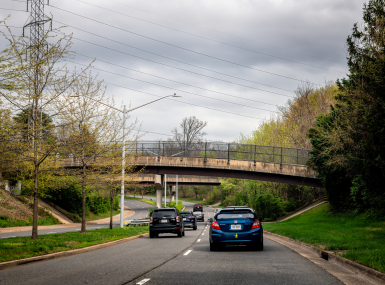House and Senate leaders release text of 2024 Federal Aviation Administration reauthorization compromise
Author
Upcoming Events
Related News

Key Takeaways
On April 29, Congressional lawmakers released the text of the Federal Aviation Administration (FAA) Act of 2024 (H.R. 3935), a bipartisan, five-year reauthorization bill that would provide $105.5 billion for the FAA from Fiscal Years (FY) 2024 through 2028.
Background
The legislation is the result of an informal conference between Capitol Hill committee staff who have been working out differences over the past several months between the Securing Growth and Robust Leadership in American Aviation Act (H.R. 3935) and the FAA Reauthorization Act of 2024 (S. 1939). The compromise comes less than two weeks ahead of the May 10 expiration of the 2018 FAA law, which is currently in its third extension.
While the House passed their version of the reauthorization bill in an overwhelmingly bipartisan vote of 351-69 in June 2023, the Senate’s legislation stalled during its consideration in the U.S. Senate Commerce, Science and Transportation Committee because of disagreements over pilot training hours and additional direct flights to the airport closest to Washington, DC (DCA).
Although pilot training requirements from the 2018 law remain intact in the new text, the compromise would add five new daily round trips to DCA amidst continuing controversy around the issue.
Legislative outlook
On May 1, the Senate overcame its first procedural hurdle on a FAA reauthorization since 2018, with a bipartisan group of Senators making up the 60 votes needed for the legislation to continue.
The Senate will use the House bill, H.R. 3935, as a vehicle to consider the compromised text. During the floor vote, Senators will have the opportunity to amend the legislation, including with items unrelated to aviation. Prior to the end of the fiscal year on September 30, the FAA reauthorization is the last piece of “must-pass” legislation facing Congress, making it vulnerable to non-germane provisions that could hold up passage.
If the Senate passes H.R. 3935, the House will also need to pass the new version before it can go to President Biden’s desk, where he is expected to sign it into law. Should Congress fail to reach a deal on the new legislation by May 10, the current law will need to be extended for a fourth time.
How does the FAA authorization impact counties?
Counties directly support 34 percent of the nation’s public airports, which are funded and regulated by FAA reauthorizations. Annually, counties invest over $5 billion in air transportation and employ nearly 12,000 Americans across the country. Key highlights of the legislation include:
- Increasing annual Airport Improvement Program funding from $3.35 billion to $4 billion
- Increasing annual authorizations for the Essential Air Service
- Increasing annual funding for the Small Community Air Service Development Program from $10 million to $15 million
- Streamlining project delivery, including applying “One Federal Decision” to airport development projects
- Creating first-ever General Aviation title
Over the next week, NACo will release a comprehensive analysis.
Resource
The Bipartisan Infrastructure Law: Examining Investments in County Infrastructure

Resource
Legislative Analysis for Counties: The Bipartisan Infrastructure Law

Related News

Local government organizations send letter in support of the BASICS Act to congressional leaders
On February 16, nearly 80 state associations of counties and municipal leagues representing local governments in all 50 states sent a letter to the leaders of the U.S. House Committee on Transportation and Infrastructure and the U.S. Senate Committee on Environment and Public Works expressing their support for the Bridges And Safety Infrastructure for Community Success (BASICS) Act (H.R. 7437) and urging its inclusion in the next surface transportation reauthorization bill.

U.S. House members introduce NACo-endorsed, bipartisan BASICS Act to improve transportation programs for local infrastructure
On February 9, Reps. Kristen McDonald Rivet (D-Mich.) and Robert Bresnahan (R-Pa.) introduced the Bridges And Safety Infrastructure for Community Success (BASICS) Act.

